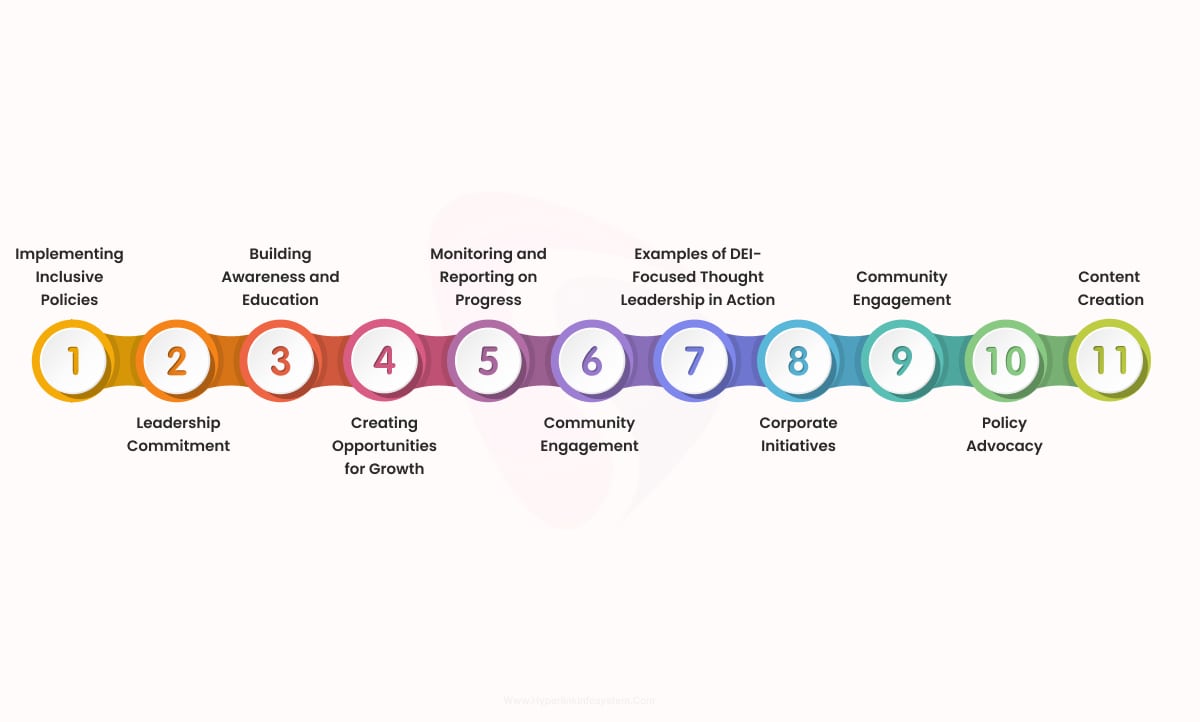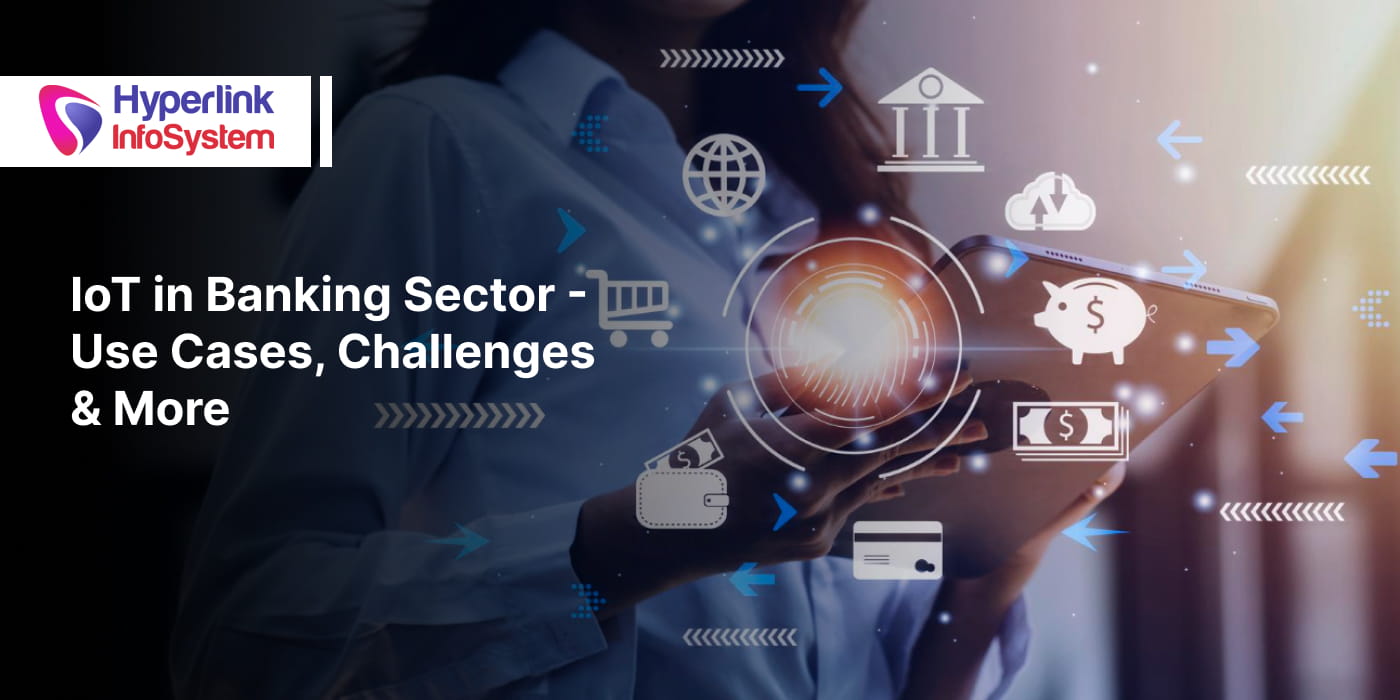Role of AI in DevOps: Types, Benefits, and More
Sep 2024
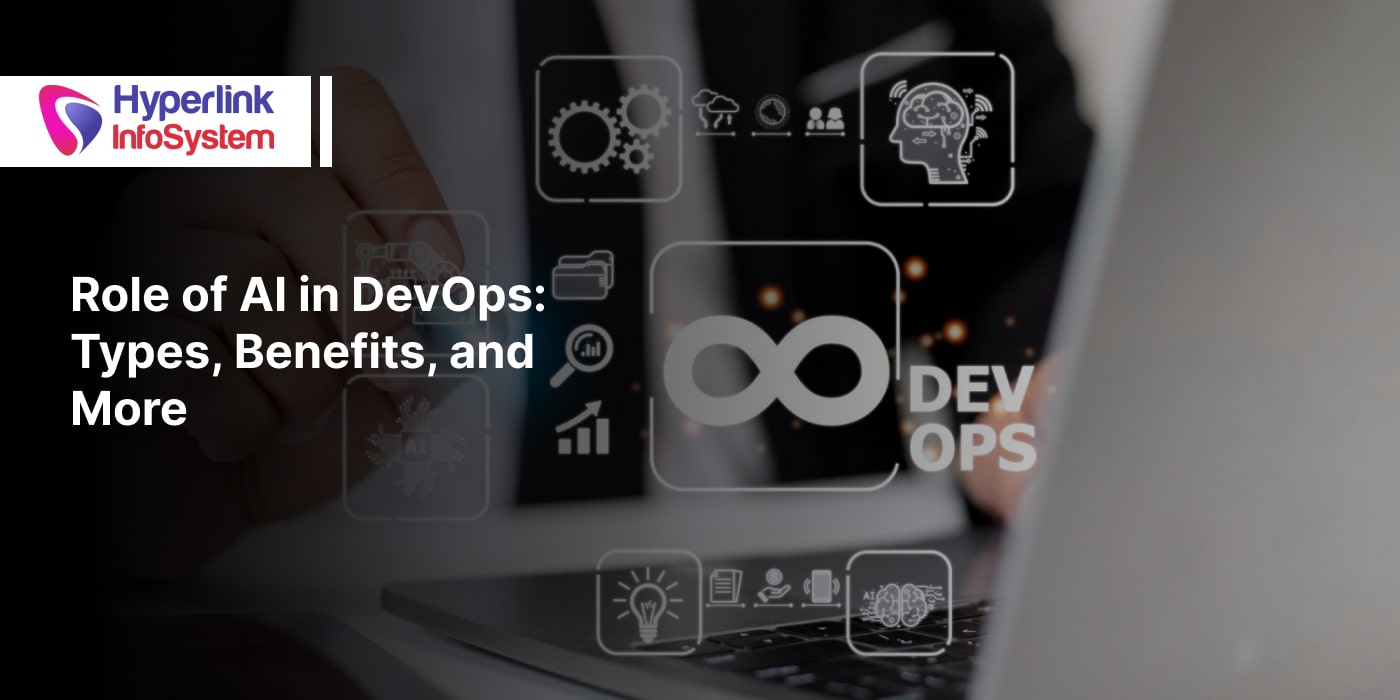
Artificial intelligence has made significant changes in the software development process. DevOps engineers may find it difficult and boring to go through the repetitive tasks and it may take them to miss bugs and cause further errors. This is where artificial intelligence comes into play.
In this blog, we'll have a detailed eye on the AI-driven DevOps.
Role of AI in DevOps
Artificial intelligence helps DevOps engineers to make the work easier, faster, and better with automation. It improves efficiency by automating the repetitive DevOps tasks. AI helps DevOps engineers write higher-quality code faster and detect bugs and errors before the app goes into deployment. In addition to that, AI-driven DevOps systems follow and maintain security compliances too. They also ensure the automated backup is there to avoid any conflicts later.
Artificial intelligence can help DevOps engineers identify and interpret CI/CD problems. It recognizes, highlights, understands, and solves these problems by itself only. This makes the whole DevOps process efficient and as a result, it speeds up the time to market for the app and reduces the other costs.
Based on the research, it is very clear that AI tools are becoming an integral part of the DevOps process as they help in automated code reviews, maintaining security standards, and solving bug issues. Their ability to take proactive security measures helps minimize risks in the entire software development process. Furthermore, AI-driven DevOps tools are best for monitoring and analyzing system performances in real-time.
Types of AI in DevOps
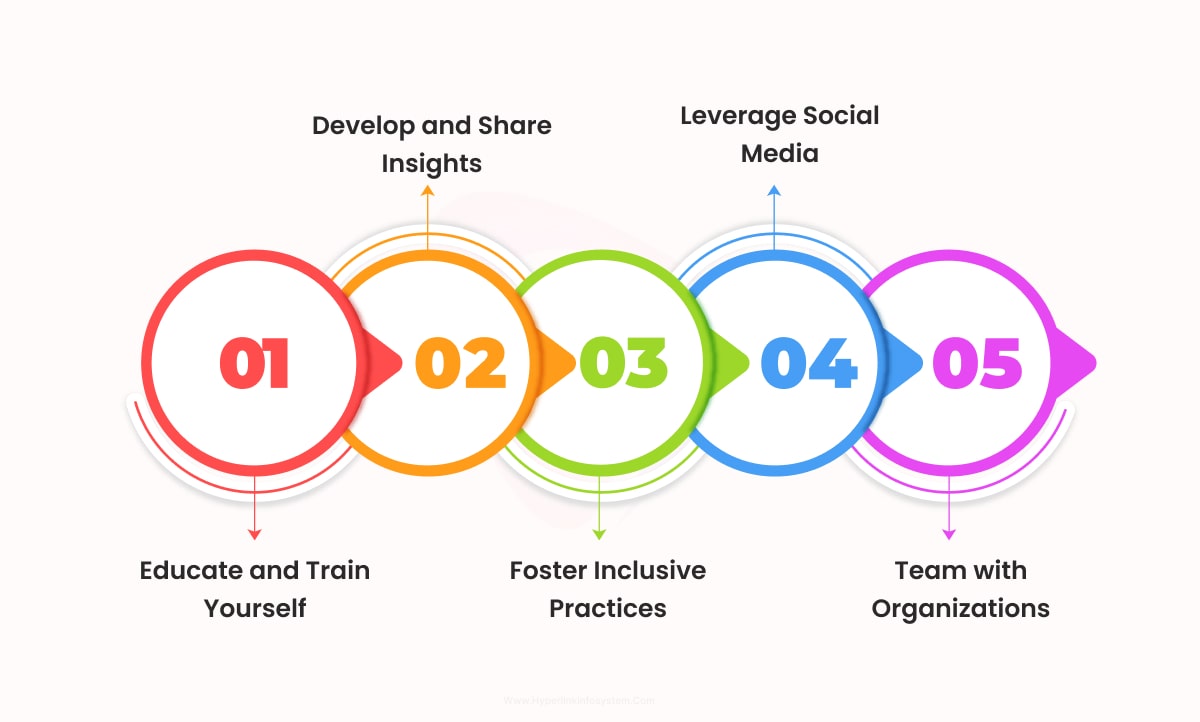
AI can play different roles in the DevOps processes. Here are some of the key use cases of AI in DevOps:
- AI for Future Predictions and Analytics
AI models use machine learning methods to learn and analyze previous data, and based on that, these models predict future trends, data, results, and other potential problems in the process. It is used in forecasting system failures, performance issues, required resources, optimal timings, and more.
- AI for Finding Bugs and Inconsistencies
AI identifies unusual and abnormal patterns in the system and code to detect bugs, security breaches, or any other inconsistencies. These models are used for monitoring and detecting any suspicious activities that can reflect on system performance or security.
- AI for Automated Testing
There are many AI-driven tools for DevOps available for testing purposes. These tools use machine learning algorithms to automate and enhance the testing process. They help in generating test cases, test prioritization, regression testing, and more.
- AI for CI/CD Pipelines
Artificial intelligence enhances the CI/CD pipelines for the software development process by optimizing developing, testing, and deployment processes. It is used in triggering builds only when necessary so it won't impact the performance, choosing the best deployment strategy, and in failure predictions.
- AI as a Co-pilot
Nowadays, AI works as a copilot in the form of chatbots and virtual assistants. They assist AI DevOps engineers using natural language processing models with real-time insights, automating repetitive tasks, instant responses, fetching logs, and more.
- AI for Infrastructure Automation
AI is used in automating infrastructure tasks like scaling, provisioning, and configuration. It is used in auto-scaling resources, configuration management, cost optimizations, etc.
AI is a privilege for DevOps engineers. As a software development company, integrating AI into your DevOps process can bring you many benefits.
Benefits of using AI in DevOps
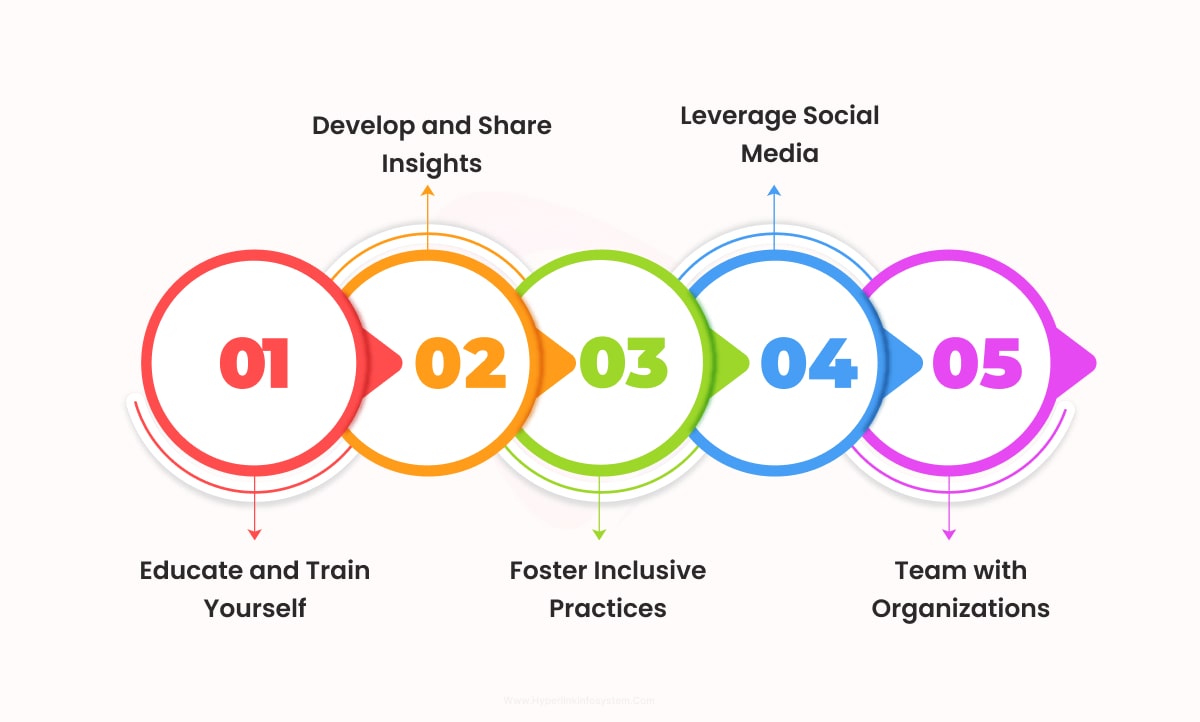
- Faster time to market
AI accelerates DevOps services by automating repetitive and time-consuming tasks, which means DevOps engineers can focus more on code development rather than manual operations. With smart decision-making and optimized CI/CD pipelines, developers will be assured that the new code will be integrated and deployed more rapidly. Hire software developers for your next project and ask them to integrate AI in DevOps.
- Increased Flexibility
Dynamic resource management allows AI development companies to respond quickly to any changes. AI can switch deployment methods based on the associated risk level. AI can be used to customize and optimize the user experience in real-time by analyzing user data and behaviors.
- Enhanced Quality
With automated testing, there is a very low chance of defects in the final product. AI models can predict the potential risks in advance so that DevOps engineers can address the problems in advance. Optimized code quality and continuous improvement with feedback loops make the final product more efficient and effective with optimized code quality.
- Cost Optimization
AI-driven tools monitor resource usage to make sure that resources are only used when necessary, one way of cost-effective resource management. Also, optimized CI/CD pipelines cut down on the costs associated with excessive use of build servers and deployment environments. It not only minimizes the cost but also reduces the wastage of unnecessary environment and structure set-up and more. Contact an artificial intelligence development company for how you can save on development costs.
- Improved decision-making
With predictive analysis and insights, AI helps DevOps engineers in smart and improved decision-making. AI tools for DevOps use machine learning algorithms to predict and state the data analysis based on the data history, user behavior, and trained data. So that DevOps engineers can focus and resolve the predicted issues and make smart decisions.
- Enhanced Productivity
AI increases productivity as it automates repetitive tasks like code testing, deployment, and monitoring. DevOps engineers can focus more on important work rather than doing manual and repetitive work. AI-driven tools help streamline workflows to provide faster issue resolution and more efficient collaborations.
- Better Security
AI offers better security by continuously monitoring systems for vulnerabilities and detecting threats. AI enhances security through automated compliance management too. AI reduces the risks of cyberattacks and helps DevOps engineers maintain robust security throughout the software development process.
How to Implement AI in DevOps?
Follow these steps to integrate AI in DevOps:
1) Choose the Area to Integrate AI
Identify the key area in the DevOps pipeline that can benefit the most from AI and then decide to move further. There are many key areas to look out for, such as automated testing, dynamic resource management, finding and solving bugs, continuous monitoring, and more. Use DevOps consulting services before moving ahead.
2) Understand your Needs and Select the right AI tools for DevOps
Know the goals and specifications of your software development project before selecting any DevOps technologies. For automated testing, CI/CD, predictive analytics, and other uses, there are many types of AI DevOps solutions available. Kubiya, Sysdig, Amazon CodeGuru, and Atlassian Intelligence are a few of the most well-liked AI DevOps technologies.
3) Explore and take advantage of Machine Learning
Automating the DevOps process can be achieved by employing several machine learning techniques, including predictive analysis models, intelligent decision-making, and bug detection systems. These models can be built using historical data, which will help them in forecasting future analytics and enhancing the DevOps process through DevOps consulting services.
4) Automate Tasks and for Continuous Monitoring
AI helps in automating routine DevOps tasks to reduce manual effort and speed up the development process. It also helps in monitoring systems to continuously track performance, security, and resources.
5) Train your DevOps Engineers
To implement AI in the software development process, you need to train your team of DevOps engineers. Make them understand AI-driven insights, predictive analytics, and how to manage AI-powered automation.
6) Start Small, Scale Gradually, and Monitor
Start with implementing AI for a specific task of your DevOps pipeline. If you feel that it is successful, then gradually expand AI integration. Keep an eye on the performance of AI tools and models.
This is how you can implement AI in DevOps. Hire dedicated software developers who can help you integrate AI in DevOps.
Challenges with Implementing AI for DevOps
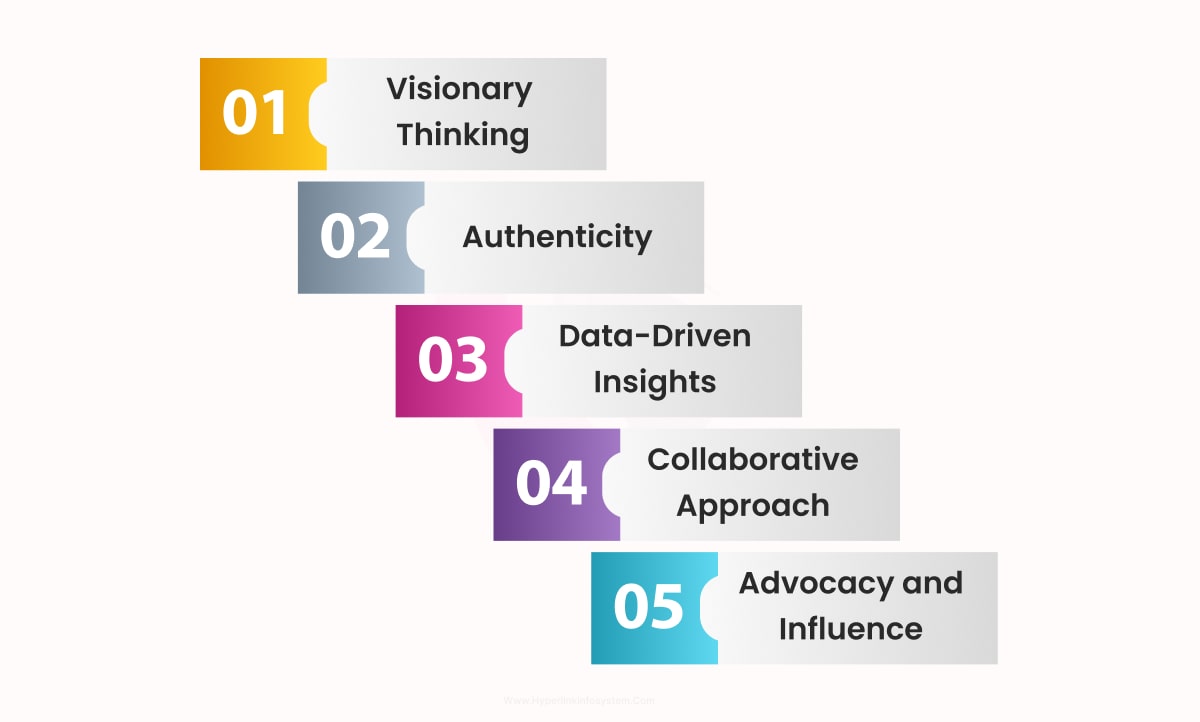
Some concerns come with the implementation of AI in DevOps. Following are some key areas to give more attention.
- Trained Data Quality
The fact that AI needs a vast amount of data to "train" it to act and make decisions is another flaw in it. While AIs do not learn in the same way as humans, this process is frequently referred to as "learning." Humans develop their skills and thought processes over time due to learning and experience. They can therefore "think" and make decisions much more nuancedly than AI can.
An AI's ability to think is also strongly related to the quality of the data that it is fed. An AI does not distinguish between what is true and what is beneficial, unlike a human who can evaluate the information they take in to make such decisions. It is going to believe something it is not told. The AI will therefore continue to use the wrong data, corrupting its judgement and leading to incorrect answers and choices. Get in touch with an artificial intelligence development company to help you with the AI model training and integrating AI into your DevOps pipeline.
- Skills Gap
Like DevOps, which is a fusion of development and operation skills, implementing AI into DevOps requires a blend of both software development and operational skills. This poses a challenge as both fields are relatively new, thus it becomes hard to identify individuals with the relevant knowledge in both fields. The alternative could be increasing your workforce or hiring independent experts who may work alongside your staff while they familiarize themselves with artificial intelligence issues.
- Black Box Problem
AI’s principal inconvenience is in its complexity and the fact that it often functions as a "black box," thus making it impossible to understand why certain decisions are made. Therefore, you will have no faith in it and hence you cannot trust what it tells you. Furthermore, it can be difficult to predict possible points of error or debug when facing an issue.
As such, explainable AI (XAI) is directed at this by allowing operators to alter how the AI "thinks" through developing AI models with programmable machine learning interfaces. This makes the process transparent to operators, enabling them to justify each decision. It is possible to identify the causes of the AI's incorrect behavior and make changes to prevent it from happening again.
Conclusion
This is why it is important to choose a reliable AI development company that can navigate you through the challenges and difficulties of implementing AI in DevOps. Now we know how AI for DevOps can bring so many benefits to the system so that DevOps engineers can focus on creative and more important tasks while other repetitive, mundane tasks are managed by AI efficiently. It is also important that the team of DevOps engineers are familiar with how AI works in the DevOps pipeline. Contact with our team so that we can help you with the integration of AI in DevOps.
Frequently Asked Questions
Follow these steps to use AI in DevOps:
- Choose the area to integrate AI.
- Understand your needs and select the right AI tools for DevOps
- Explore and take advantage of Machine Learning
- Automate tasks and continuous monitoring
- Train your DevOps engineers
- Start small, scale gradually, and monitor
Yes, Amazon CodeGuru, Atlassian Intelligence, and more.
Faster time to market, enhanced efficiency, cost optimization, better security, and dynamic resource management are some of the key benefits of AI in DevOps.
Latest Blogs

Is BlockChain Technology Worth The H ...
Unfolds The Revolutionary & Versatility Of Blockchain Technology ...


IoT Technology - A Future In Making ...
Everything You Need To Know About IoT Technology ...

Feel Free to Contact Us!
We would be happy to hear from you, please fill in the form below or mail us your requirements on info@hyperlinkinfosystem.com
Hyperlink InfoSystem Bring Transformation For Global Businesses
Starting from listening to your business problems to delivering accurate solutions; we make sure to follow industry-specific standards and combine them with our technical knowledge, development expertise, and extensive research.
4500+
Apps Developed
1200+
Developers
2200+
Websites Designed
140+
Games Developed
120+
AI & IoT Solutions
2700+
Happy Clients
120+
Salesforce Solutions

40+
Data Science











